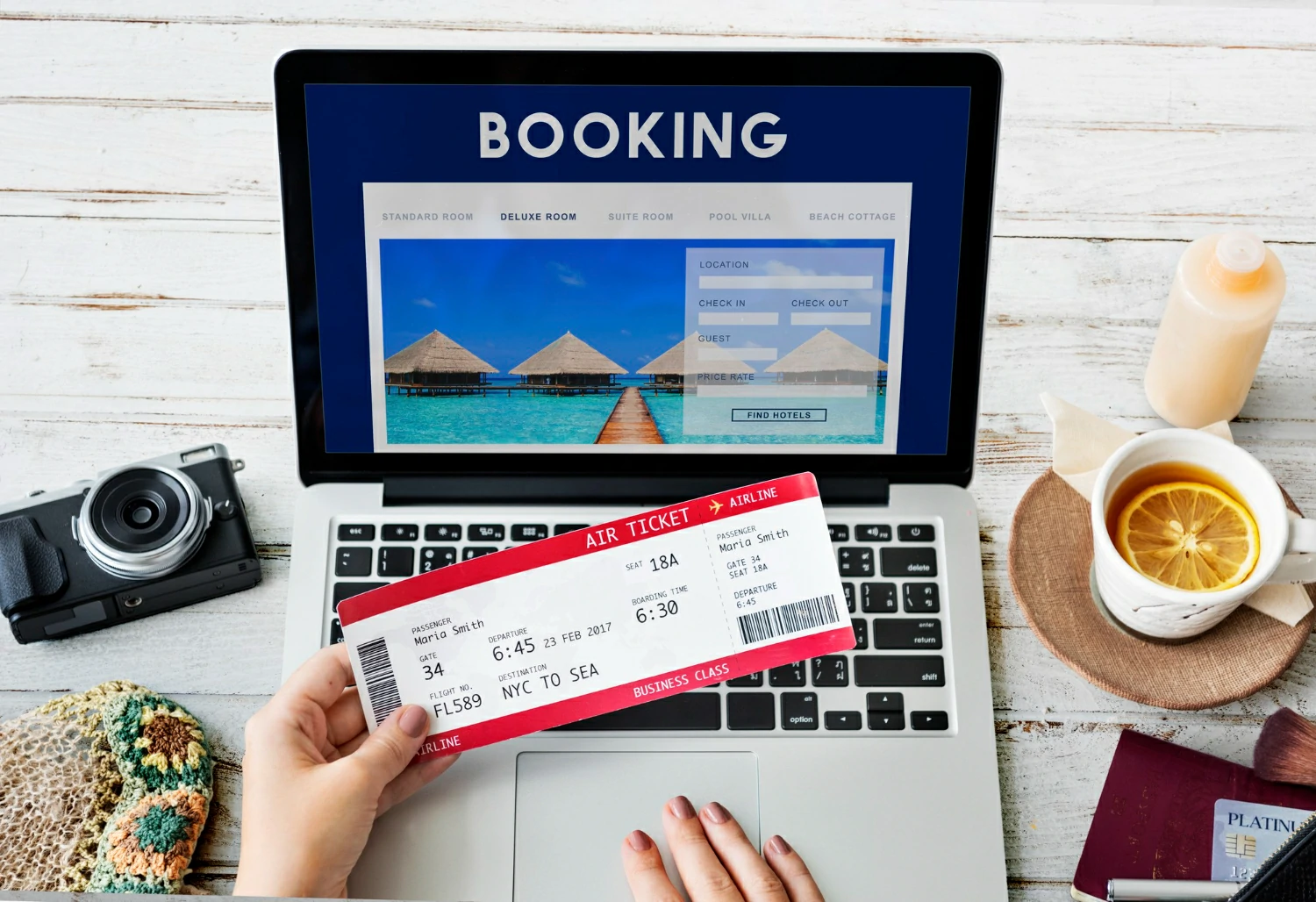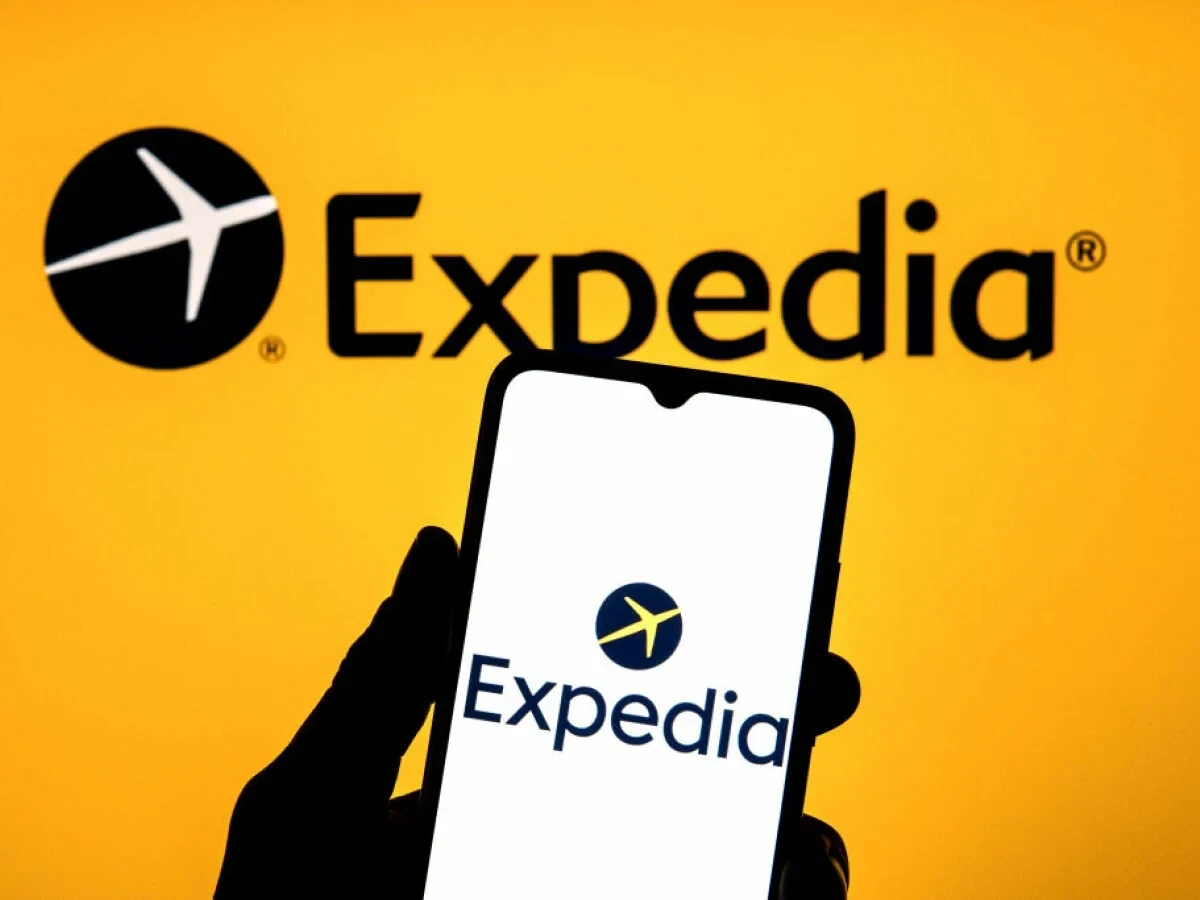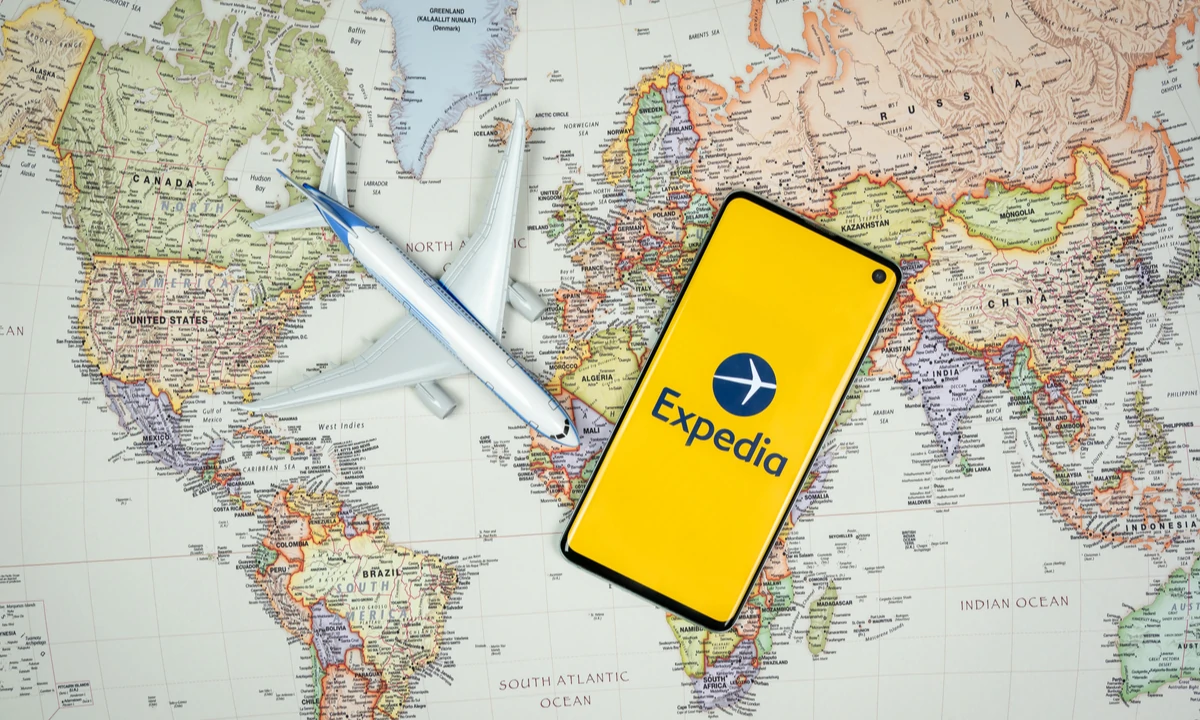Why is Expedia cheaper than booking direct? Answer is – Expedia often offers lower prices than booking directly with hotels or airlines for several reasons. They negotiate bulk discounts with travel providers, giving them access to special rates.
Additionally, they may bundle flights and hotels, creating packages that are cheaper than booking components individually. Sometimes, Expedia may even sell rooms or flights at a slight loss to attract customers.
However, it’s always wise to compare prices between Expedia and the provider’s direct website to ensure you’re getting the best deal.
Summary
- Expedia leverages bulk discounts to offer lower prices to consumers.
- Bundle deals on Expedia can make trips more affordable than booking each component separately.
- Expedia’s pricing strategies can sometimes involve selling at a slight loss to gain market share.
- Price comparison between Expedia and direct booking is essential for finding the absolute best deal.
Why is Expedia cheaper than booking direct?

Anyone who’s ever planned a trip knows the feeling: the excitement of choosing a destination, the thrill of browsing hotels, and the inevitable sticker shock when those prices start to add up. That’s where Expedia steps in, promising the same vacation experiences at seemingly lower costs.
But how does this online travel giant manage to do it? Let’s dive into the intriguing world of Expedia’s pricing strategies and explore the reasons behind those tempting deals.
The Allure of Expedia’s Unbeatable Prices
Expedia has become synonymous with budget-friendly travel. Their user-friendly platform and eye-catching discounts entice us to believe we’re getting the best possible value for our money.
Whether it’s a luxurious beach resort or a cozy city apartment, the promise of savings is hard to ignore. But this begs the question – is it simply clever marketing, or are there tangible factors that make Expedia cheaper than booking directly with hotels or airlines?
Understanding the Factors Behind Expedia’s Cost-Saving Potential
The truth is, there’s no single magic formula behind Expedia’s pricing. It’s a combination of several business tactics that aim to offer competitive (and sometimes unbeatable) rates to travelers.
Some of the key strategies include:
1. Bulk Buying Power: Expedia is a massive player in the travel industry, facilitating bookings for millions of customers each year. This gives them significant leverage when negotiating with hotels and airlines.
2. Attractive Package Deals: By bundling flights, hotels, and even rental cars, they can often offer prices far more attractive than booking each travel component individually.
Why Expedia Can Be Cheaper

1. Bulk Purchasing Power
Imagine Expedia as the Costco of the travel world. Just as Costco buys products in massive quantities to secure lower prices from suppliers, Expedia leverages its position as a major booking platform to negotiate bulk discounts with hotels, airlines, and other travel providers.
Expedia’s Extensive Network: Expedia partners with countless hotels and airlines around the globe. This vast network of suppliers gives them a strong bargaining chip when it comes to pricing.
Guaranteed Room Blocks: In some cases, Expedia might pre-purchase blocks of hotel rooms or airline seats at wholesale rates. By guaranteeing a certain volume of bookings, they can secure significantly lower prices than an individual traveler could.
The Power of Volume: Think of it this way: a hotel would rather offer a slightly reduced rate to Expedia and fill a large percentage of their rooms than let those rooms sit empty, hoping for walk-ins at full price. Airlines follow a similar logic, knowing that filling seats, even at lower fares, is better for the bottom line.
How Volume Discounts Translate to Lower Consumer Prices
The beauty of Expedia’s bulk purchasing power is that those wholesale discounts trickle down to us, the consumers. Here’s how it works:
Pass-Through Savings: Expedia doesn’t necessarily pocket all the savings from negotiated rates. To stay competitive, they often pass a portion of those savings onto travelers in the form of lower prices.
Attracting Customers: Expedia understands that value-conscious travelers are always seeking the best deals. Offering competitive rates through bulk discounts is a way to win over customers and build loyalty.
2. Attractive Package Deals
Beyond the power of bulk discounts, Expedia excels in creating tempting package deals that bundle various travel components – most commonly flights and hotels.
Sometimes car rentals, activities, or even complete vacation packages are included. The secret sauce behind these deals lies in the art of bundling.
The Cost-Effectiveness of Flight and Hotel Bundles
Let’s break down why package deals can be a budget traveler’s best friend:
Combined Buying Power: When Expedia bundles flights and hotels, they leverage their bulk purchasing power with both airlines and hotels at once. This allows them to negotiate even deeper discounts than they could for individual components.
Reduced Overhead: Packaging components together streamlines the booking process for Expedia. It means less marketing, fewer customer service interactions, and lower administrative costs when serving a single customer for multiple travel needs.
Shared Savings: Expedia can pass some of those operational savings onto consumers, making bundled packages an enticing option compared to piecing together a trip on your own.
How Bundling Can Lead to Significant Savings
Imagine you’re planning a week-long trip to Miami. Here’s how a package deal could save you money:
Scenario 1: Booking Separately
- Flight: $400 (roundtrip)
- Hotel: $150 per night x 7 nights = $1050
- Total: $1450
Scenario 2: Expedia Package
- Flight + Hotel: $1200
- Savings: $250
Important Considerations:
- Flexibility: Bundles often offer less flexibility for changes or cancellations versus booking separately.
- Hidden Costs: Always read the fine print of package deals, as some might exclude resort fees, specific room types, or baggage allowances.
3. Strategic Pricing
At times, you might stumble upon Expedia prices that seem too good to be true – as if they’re selling flights or hotel rooms below what they likely paid for them. This isn’t necessarily an error; it can be a calculated part of Expedia’s broader pricing strategy.
When Expedia Might Sell Below-Cost to Attract Customers
Here are some scenarios where Expedia might strategically offer loss-leading deals:
Market Share Capture: In the competitive online travel market, Expedia is constantly vying for customers. Offering incredibly low prices, even at a slight loss, can be a way to grab attention and tempt travelers away from competitors.
New Market Entry: If Expedia is trying to break into a new destination or gain traction with a specific hotel chain, they might offer unbeatable introductory rates as a way to build initial volume and create buzz.
Customer Loyalty: Once a traveler experiences and appreciates the ease of booking on Expedia, they’re more likely to become repeat customers, potentially leading to more profitable bookings in the future.
The Long-Term Benefits of this Customer Acquisition Strategy
Playing the long game is essential in the travel industry. Expedia understands that taking a short-term hit on a particular booking can have significant long-term payoffs.
Building a Customer Base: Every traveler lured in by a fantastic deal is a potential repeat customer. Expedia can focus on providing excellent service to encourage loyalty and future bookings at more standard margins.
Data Collection: Each booking allows Expedia to gather valuable customer data, including travel preferences, spending patterns, and more. This data can then be used to tailor future offers, improving personalization and conversion rates.
Upselling Opportunities: While a customer might initially book based on a cut-rate hotel room, Expedia can then offer upgrades, add-ons (like activities or car rentals), or promote their loyalty program to increase overall revenue per customer.
Is Expedia Always the Cheapest Option?

While Expedia has a reputation for affordability, and often delivers on that promise, it’s crucial to remember that it’s not a foolproof guarantee of the absolute lowest price on every single trip. The world of travel pricing is dynamic, and several factors can make booking directly with hotels or airlines more appealing in certain situations.
1. The Importance of Price Comparison
Savvy travelers know that the key to snagging the best deal lies in comparison shopping. While Expedia is an excellent starting point for your travel research, don’t let the allure of those tempting discounts blind you to potential savings elsewhere.
Checking Prices Directly with Hotels and Airlines
It might seem counterintuitive, but sometimes going straight to the source can yield pleasant surprises. Here’s why:
Special Promotions: Hotels often run exclusive promotions on their own websites, ranging from flash sales to loyalty member discounts. These might not always be reflected in the prices listed on Expedia.
Direct Booking Incentives: To encourage direct bookings, some hotels offer perks like free breakfast, room upgrades, or resort credits that you wouldn’t get through a third-party site.
Negotiation Power: If you’re flexible with your dates or have specific needs, contacting a hotel directly can sometimes allow for a bit of negotiation, especially during less busy seasons.
Factors that Can Influence Direct Booking Prices
Several factors can sway prices in favor of booking directly with hotels or airlines:
Timing: Last-minute bookings are often less expensive when done directly, as hotels try to fill unsold rooms and airlines release unsold seats.
Loyalty Programs: Being a member of a hotel or airline’s loyalty program can unlock exclusive rates and benefits not available on Expedia.
Customer Relationship: If you’re a repeat customer at a particular hotel or have a good relationship with the staff, don’t underestimate the power of asking for a better rate directly.
Package Deals vs. Individual Needs: Expedia bundles excel when you need standard flights and accommodations. However, if you have highly specific requirements for your room, want to fly a less common airline, or prioritize non-stop routes, a direct booking might grant you more control and potentially better pricing.
2. Hidden Fees and Potential Drawbacks
While Expedia’s prices can be incredibly attractive, it’s essential to be aware of the potential ‘fine print’ that could bump up the overall cost or limit your flexibility compared to booking directly.
Additional Charges to Consider When Booking Through Expedia
Resort Fees: Resort fees, those pesky mandatory charges added to hotel stays in some destinations, are often not included in the initial price displayed on Expedia. These fees can add a significant amount to your final bill, so always check the fine print of your hotel listing or contact Expedia directly for clarification.
Booking or Service Fees: Depending on the type of travel you’re booking, Expedia may charge transaction fees or service fees on top of the base price. These can add up, especially for complex bookings or if you require additional support.
Cancellation and Change Fees: Expedia’s change and cancellation policies can sometimes be more restrictive than when booking directly with a hotel or airline. In case your plans change, you might incur higher fees or even lose a portion of your payment through Expedia.
Possible Limitations in Terms of Flexibility and Customer Service
Changes and Modifications: If you need to modify your flights, hotel dates, or other booking details, things might be smoother when you have a direct relationship with the provider. Expedia might act as an intermediary, potentially complicating the process.
Problem Resolution: In case of flight cancellations, overbooked hotels, or other unexpected travel issues, having booked directly can give you more leverage and direct communication when negotiating solutions. Customer service experiences with Expedia can be inconsistent based on the scale of their operations.
Earning and Applying Loyalty Points: Often, bookings made through Expedia aren’t eligible to earn loyalty points with hotel or airline programs. You also can’t usually redeem existing points through Expedia. This can be a missed opportunity if you’re a frequent traveler aiming to accumulate those valuable perks.
How to Make the Most of Expedia’s Pricing

While snagging the best deals on Expedia sometimes requires a little luck, strategic planning goes a long way. Here are key tactics to leverage Expedia’s platform to your advantage:
1. Flexibility is Key
Rigid travel plans can limit your ability to find the best bargains. If you have the luxury of flexibility, use it to your advantage and let Expedia lead you to the most cost-effective options.
Be Open to Alternative Dates
Even shifting your travel dates by a day or two can sometimes drastically impact pricing. Expedia’s search tools often have “flexible dates” options, letting you visualize how prices fluctuate throughout the month.
If saving money is your top priority, let the deals dictate your schedule, rather than the other way around.
Explore Similar Destinations
If you have a destination in mind, consider expanding your search to include nearby locations or less-popular alternatives.
You might discover hidden gems with the same appeal and lower prices due to decreased demand. Expedia’s destination guides and search filters can help you find comparable options to your initial choice.
Take Advantage of Last-Minute Deals
If spontaneity is your style, Expedia often rewards last-minute adventurers. Hotels and airlines try to fill unsold inventory closer to departure dates, leading to potentially steep discounts for those able to pack their bags on short notice.
Keep an eye on Expedia’s “Deals” section or sign up for their email alerts to catch these fleeting offers.
2. Using Expedia Rewards
Loyalty programs aren’t just for frequent flyers. Expedia Rewards offers a simple yet effective way to unlock further savings and perks, especially if you become a regular user of their platform.
Benefits of the Loyalty Program
Points for Bookings: You earn points on eligible flights, hotels, activities, and package deals. These points accumulate and can be redeemed later for discounts on future bookings.
Member-Only Prices: As you progress through Expedia Rewards tiers (Blue, Silver, and Gold), you’ll gain access to exclusive prices on selected hotels, offering even deeper discounts.
Upgrades and Perks: Higher-tier members may occasionally receive complimentary room upgrades or other benefits at selected hotels, adding value to your trip.
Accumulating Points for Future Discounts
While the initial rewards might seem modest, consistent use of Expedia can make the points add up surprisingly quickly. Here’s the strategy:
Don’t Overlook Small Bookings: Even short hotel stays or domestic flights earn you something. Think of your points as a long-term travel savings fund.
Combine with Credit Card Rewards: If you have a travel rewards credit card that also partners with Expedia, you might be able to ‘double dip,’ earning points in both programs to maximize returns.
Target Promotions: Expedia frequently runs point multiplier promotions, offering bonus points for specific destinations or booking types. Keep an eye on your account dashboard or emails to take advantage of these opportunities.
What Does This Mean for Travelers?

The way Expedia operates has changed the landscape of travel booking. As a savvy traveler, understanding the nuances of their pricing model allows you to make choices best aligned with your individual needs and priorities.
Let’s unpack the key takeaways:
1. Don’t Assume Direct Booking Is Always More Expensive
The age-old belief that booking directly with hotels or airlines guarantees the lowest price isn’t always true.
Expedia’s vast network, bulk purchasing power, and bundling opportunities mean they often can offer competitive, and sometimes even better, pricing than the providers themselves.
The key lesson here is to challenge preconceived notions and embrace comparison shopping.
2. Take Time to Research and Compare Options
Finding the absolute best deal requires a bit of extra effort. Rather than booking impulsively based on the first price you see, dedicate some time to comprehensive research. Here’s a simple, effective process:
Use Expedia as a Baseline: Start your search on Expedia, taking advantage of their user-friendly interface, bundle deals, and potential rewards benefits.
Check the Source: Always cross-reference the prices you find on Expedia with the hotel or airline’s official website. Look for any direct booking discounts or special promotions.
Factor in Your Priorities: Price isn’t everything. Consider flexibility needs, loyalty program memberships, and your desire for direct customer service interaction.
3. Be Aware of Both the Benefits and Potential Trade-offs of Using Expedia
Expedia is a powerful tool for budget-conscious travelers, but it’s vital to keep a balanced perspective. Let’s recap the pros and cons:
Benefits
- Potential Cost Savings: Expedia can frequently offer lower prices due to their buying power, package deals, or periodic sales.
- Convenience: Expedia’s platform streamlines the research process, allowing you to compare numerous flights, hotels, and activities in one place.
- Rewards Programs: Expedia Rewards can add additional savings and perks, especially for frequent users.
Potential Trade-Offs:
- Hidden Fees: Resort fees or booking fees might add to the final cost, so it’s crucial to examine the fine print before confirming your booking.
- Limited Flexibility: Expedia’s cancellation and change policies might be stricter than booking directly, mainly regarding bundled packages.
- Potentially Less Personalized Service: In case of unexpected hiccups, dealing with Expedia as an intermediary can sometimes be less efficient compared to direct communication with the hotel or airline.
Conclusion
Expedia offers travelers an undeniably valuable tool in the quest for cost-effective vacations. Their bulk discounts, attractive package deals, and strategic pricing tactics mean there’s always the potential to save money on your dream trip.
However, the key takeaway is that Expedia shouldn’t be your only stop when planning travel. Embracing price comparison and considering your individual travel style is essential to securing the absolute best deal and ensuring a smooth travel experience. Remember, sometimes the cheapest option isn’t always the best option.
By following the strategies outlined in this guide, you can empower yourself to navigate Expedia’s platform with confidence. Whether you prioritize value above all else, cherish flexibility, or crave the personalized touch of direct bookings – you now hold the knowledge to make choices that match your needs.
FAQs
Is Expedia safe and reliable?
Expedia is a reputable, established company with millions of users worldwide. They have secure booking systems and customer service channels. While issues can occasionally arise as with any travel company, they’re generally considered a safe platform to use.
Does Expedia offer a best price guarantee?
Expedia doesn’t have a universal price-match guarantee. However, certain listings might come with a guarantee badge. If you find the same itinerary cheaper elsewhere within a specified time frame, they might match the price or offer compensation. Check the terms for each booking.
What about hidden fees on Expedia?
Always be mindful of resort fees, especially for hotel stays in certain destinations. Read the fine print and factor in all potential additional fees when comparing prices across platforms.
What if I need to cancel my Expedia booking?
Cancellation policies vary depending on the hotel, airline, and the specific fare type you chose. Expedia typically displays the policy before booking. For changes and cancellations, it’s sometimes beneficial to contact the hotel or airline directly, alongside dealing with Expedia, to ensure the smoothest process.
Are there alternatives to Expedia?
Absolutely! Competitors like Kayak, Priceline, Booking.com, and others offer similar services with varying pricing and deals. It’s worth exploring them as part of your price comparison.







